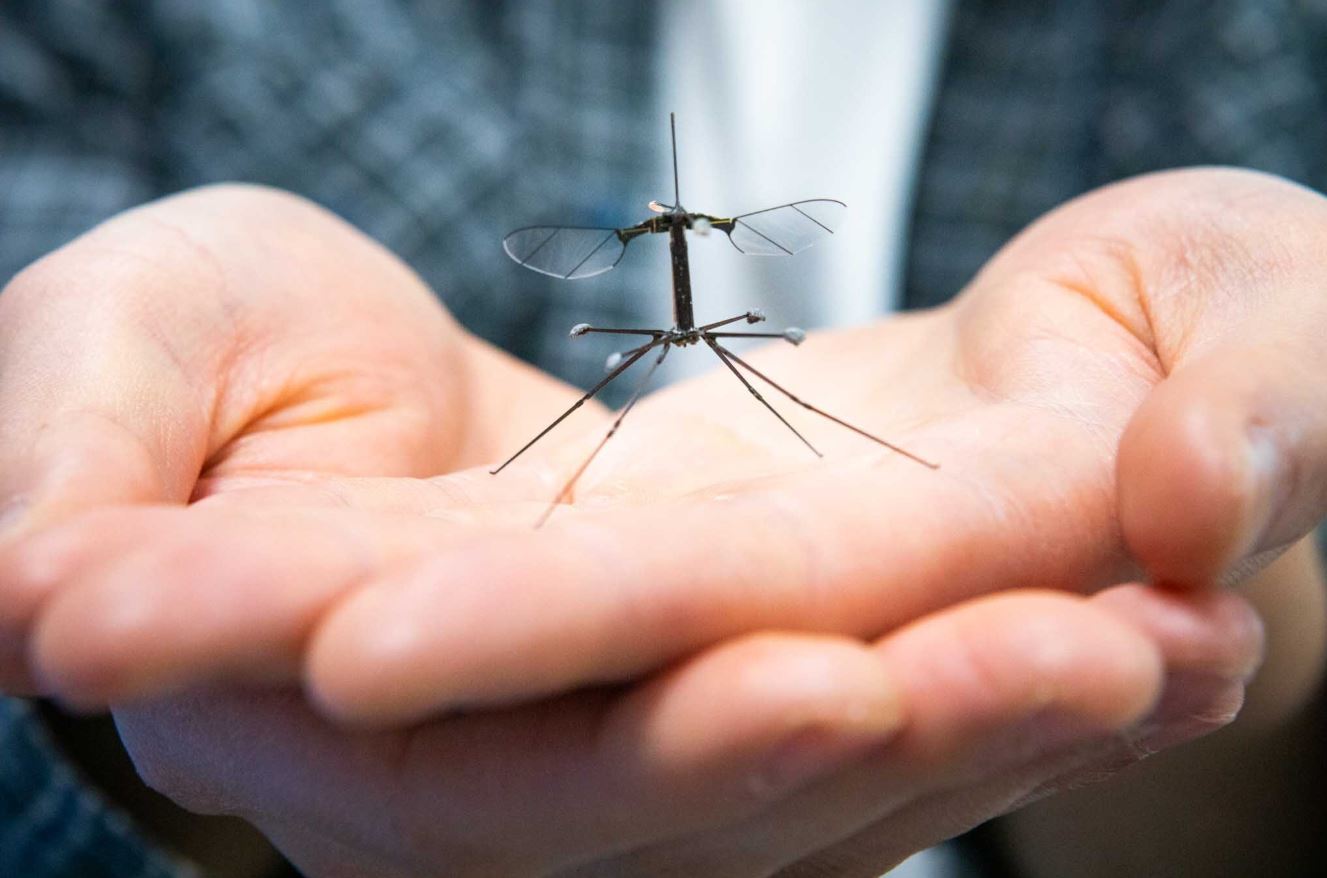 Imagine a tiny robot that can fly, dive, and swim—sounds like something out of a sci-fi movie, right? Well, Harvard University researchers have made this a reality with their latest version of RoboBee. This isn’t just any miniature robot; it’s a hybrid marvel equipped with new landing gear inspired by the crane fly. The team at the Harvard Microrobotics Laboratory, led by Professor Robert Wood, has given RoboBee long, jointed legs that allow it to land more smoothly.
Imagine a tiny robot that can fly, dive, and swim—sounds like something out of a sci-fi movie, right? Well, Harvard University researchers have made this a reality with their latest version of RoboBee. This isn’t just any miniature robot; it’s a hybrid marvel equipped with new landing gear inspired by the crane fly. The team at the Harvard Microrobotics Laboratory, led by Professor Robert Wood, has given RoboBee long, jointed legs that allow it to land more smoothly.
These enhancements aren’t just for show. The new design is all about protecting RoboBee’s delicate flight ‘muscles,’ known as piezoelectric actuators. Before these upgrades, landing was quite the challenge due to the tiny robot’s minuscule mass and small wingspan. It was a bit like trying to land a helicopter in a hurricane—those air vortices were a real problem.
Christian Chan, a graduate student who led the redesign, shared some insight: “We used to just turn off the RoboBee above the ground and hope for the best.” Now, with improved control systems, the team has tackled those tricky ground effects head-on, as they detail in their recent paper.
Co-author Nak-seung Patrick Hyun, now an assistant professor at Purdue University, highlighted the importance of reducing impact velocity for safe landings. The crane fly, known for its smooth landings, served as the perfect model. By studying its long, jointed legs, researchers developed a similar design for RoboBee.
Alyssa Hernandez, a postdoctoral researcher, noted the bioinspirational approach, saying, “RoboBee is a fantastic platform to explore the intersection of biology and robotics.” This research not only advances robotics but also opens doors to understanding biology better.
Looking ahead, the team plans to make RoboBee fully autonomous by integrating onboard electronics. This will unlock practical applications like environmental monitoring, disaster surveillance, and even artificial pollination, where swarms of RoboBees could assist in agriculture.








